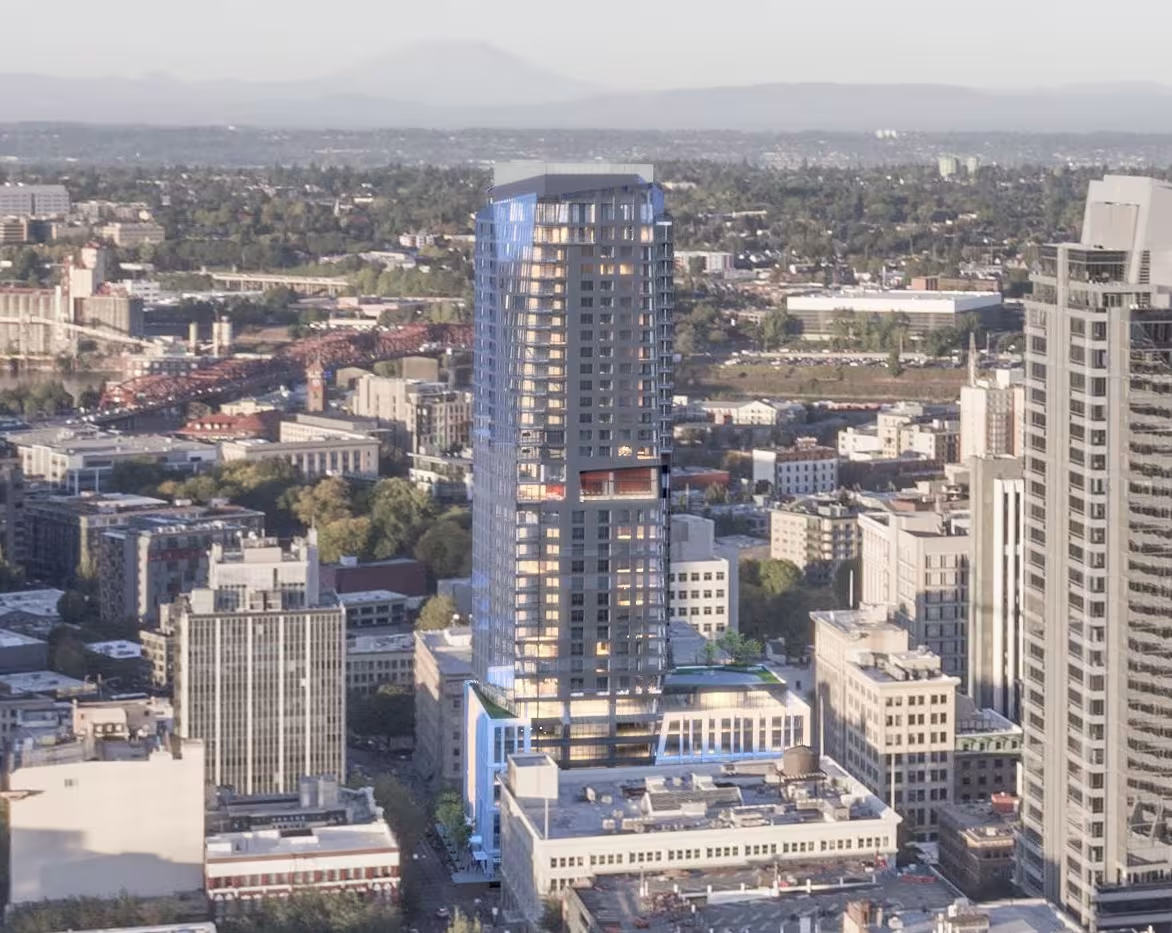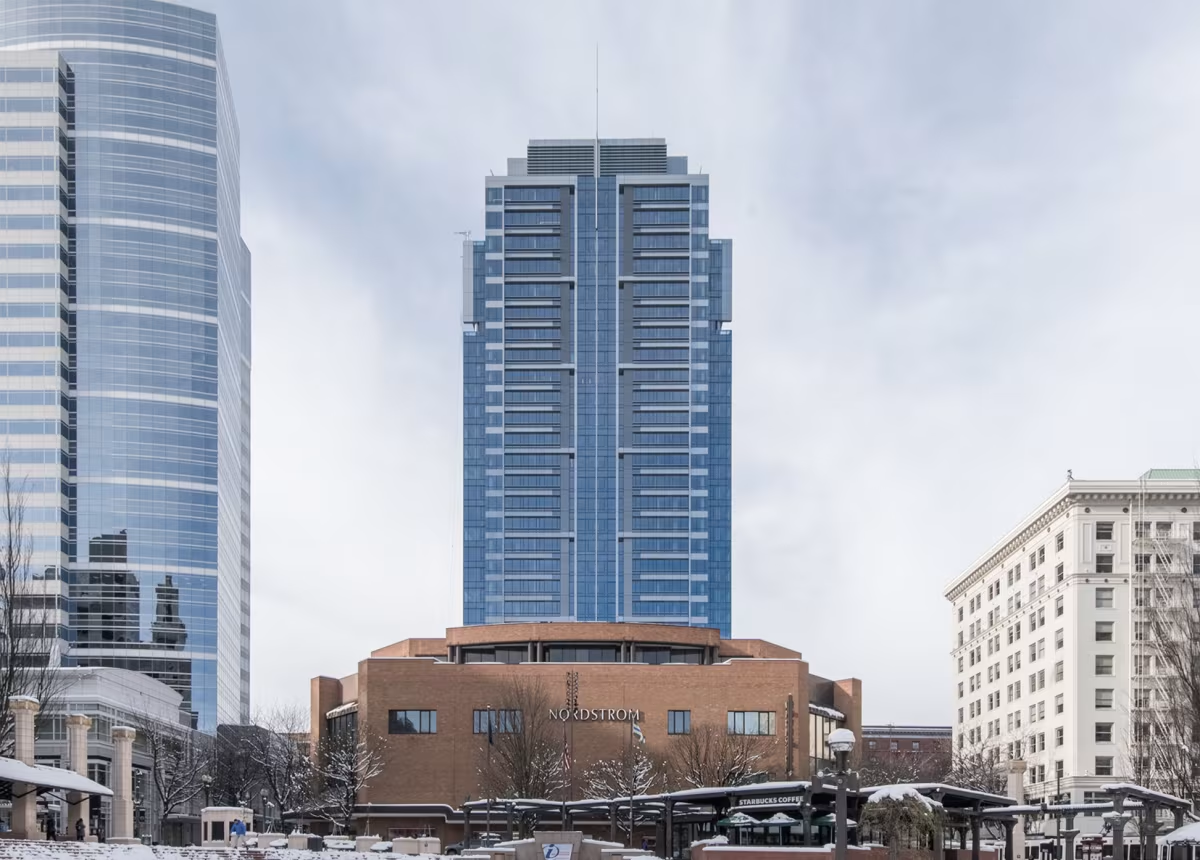Block 216 vs Park Avenue West Tower


Comparing the Block 216 and the Park Avenue West Tower is interesting because they both rise in Portland, OR, yet they were conceived by two different design teams, GBD Architects and TVA Architects, and were completed at different points in time. They were finished more than 7 years apart.
This contrast within the same city allows us to see how different creative minds interpreted the evolving needs of Portland across time.
Let's take a closer look!
Height & Size
The Block 216 is clearly the larger tower of the two, both in terms of height and number of floors. It rises to 463ft (141m) with 35 floors above ground, while the Park Avenue West Tower reaches 459ft (140m) with 30 floors above ground.
Block 216 also offers more total built-up area, a total fo 10,297,845 sqf (956,702m2), which is about 9,679,835 sqf (899,287m2) more than what the Park Avenue West Tower offers.
Of course, each project may have faced different briefs or regulatory constraints, which we don't really know about and could also explain the outcome.
Architectural Style
Both the Block 216 and the Park Avenue West Tower were designed in line with the aesthetic conventions of the Contemporary style.
At the time, this style was at the height of its popularity. So both GBD Architects and TVA Architects followed what was in many ways expected of them, producing designs that fit comfortably within contemporary architectural norms, rather than breaking with convention.
Uses
Both towers follow a mixed-use program. The Block 216 combines residential, hotel and commercial, while the Park Avenue West Tower integrates commercial, residential and retail. Notably, both include residential and commercial as part of their program.
The Block 216 incorporates a 5-star hotel with 251 rooms. More information is available at the official website.
In terms of capacity, the Block 216 offers 132 apartments, while the Park Avenue West Tower provides 202 units.
The Park Avenue West Tower also provides 328 parking spaces.
Structure & Facade
The two towers rely on different structural systems, reflecting distinct engineering strategies.
The Block 216 uses a Framed Tube In Tube structural system, which combines a strong central core with a perimeter tube of columns, while the Park Avenue West Tower uses a Frame system, that relies on a regular grid of columns and beams to sustain its weight.
Yet, when it comes to their facade, they both employed the same solution, a Curtain Wall facade.
A curtain wall is a non-load-bearing facade hung from the structural frame. It is anchored to floor slabs and transfers only its own weight and wind loads, allowing for sleek, glassy exteriors.
| Block 216 | Park Avenue West Tower | |
|---|---|---|
| GBD Architects | Architect | TVA Architects |
| 2020 | Construction Started | 2008 |
| 2023 | Year Completed | 2016 |
| Contemporary | Architectural Style | Contemporary |
| Mixed | Current Use | Mixed |
| 35 | Floors Above Ground | 30 |
| 5 | Floors Below Ground | 6 |
| 141 m | Height (m) | 140 m |
| 956702 | Built-up Area (m²) | 57415 |
| 132 | Residential Units | 202 |
| Framed Tube In Tube | Structure Type | Frame |
| Reinforced Concrete | Vertical Structure Material | A Concrete Core With Steel Frame |
| Reinforced Concrete | Horizontal Structure Material | Poured Concrete Over Metal Decking |
| No | Facade Structural? | No |
| Glass | Main Facade Material | Glass, Steel |
| Howard S. Wright | Main Contractor | Hoffman Construction |
| BPM Real Estate Group | Developer | TMT Development |
| KPFF Engineering | Structural Engineer | KPFF Consulting Engineers |
| OR | State | OR |
| Portland | City | Portland |
| 900 SW Washington Street | Address | 725 Southwest 9th Avenue |